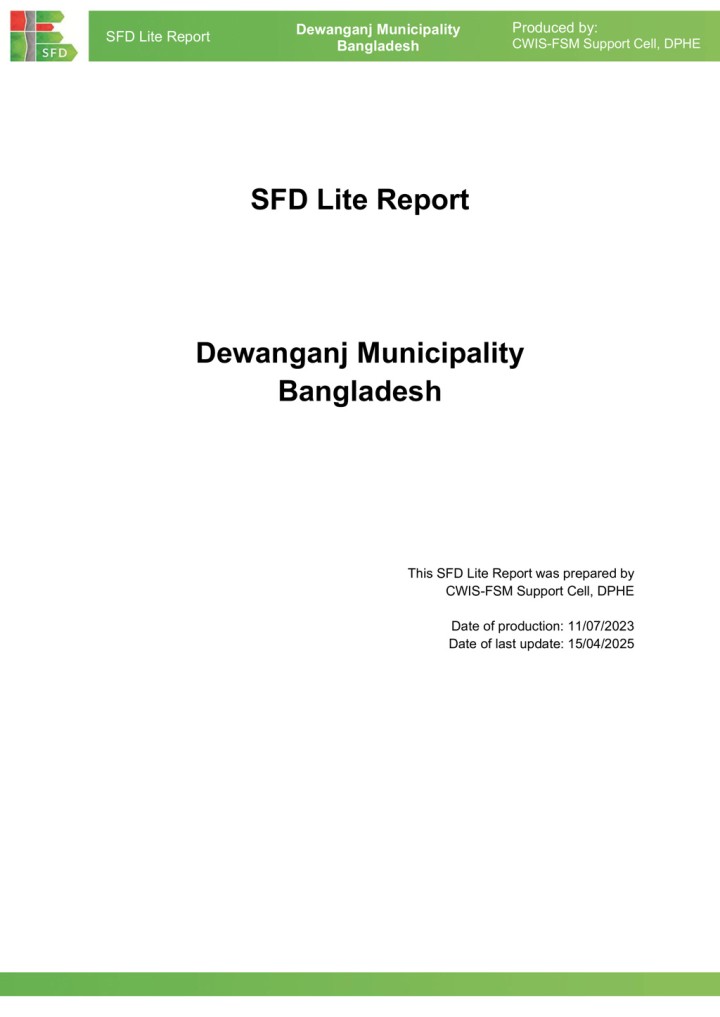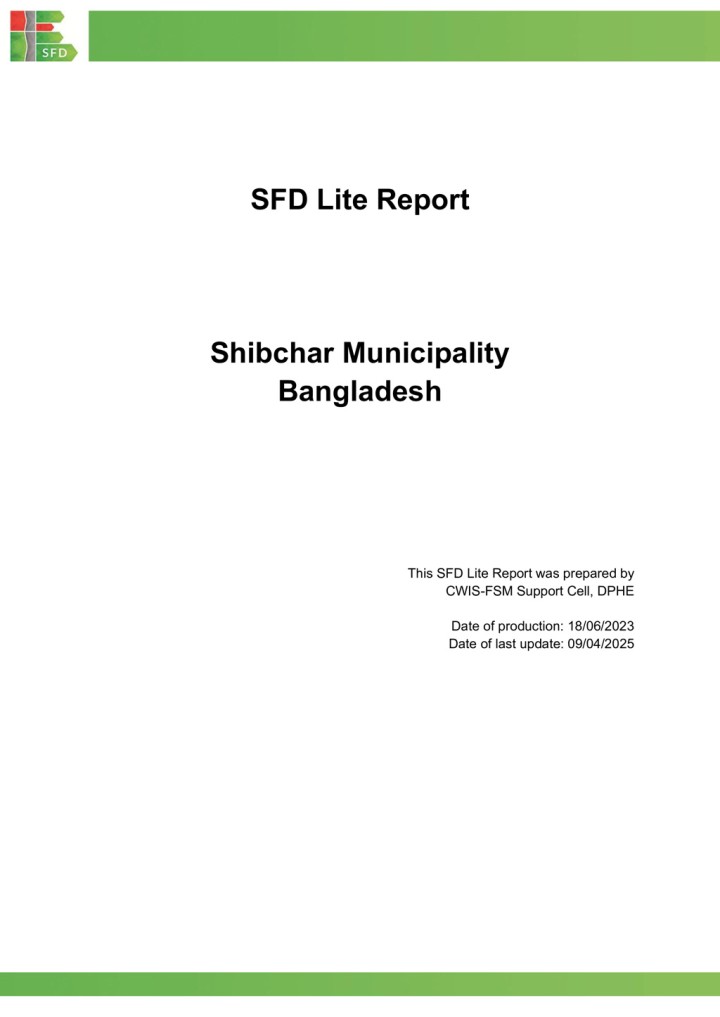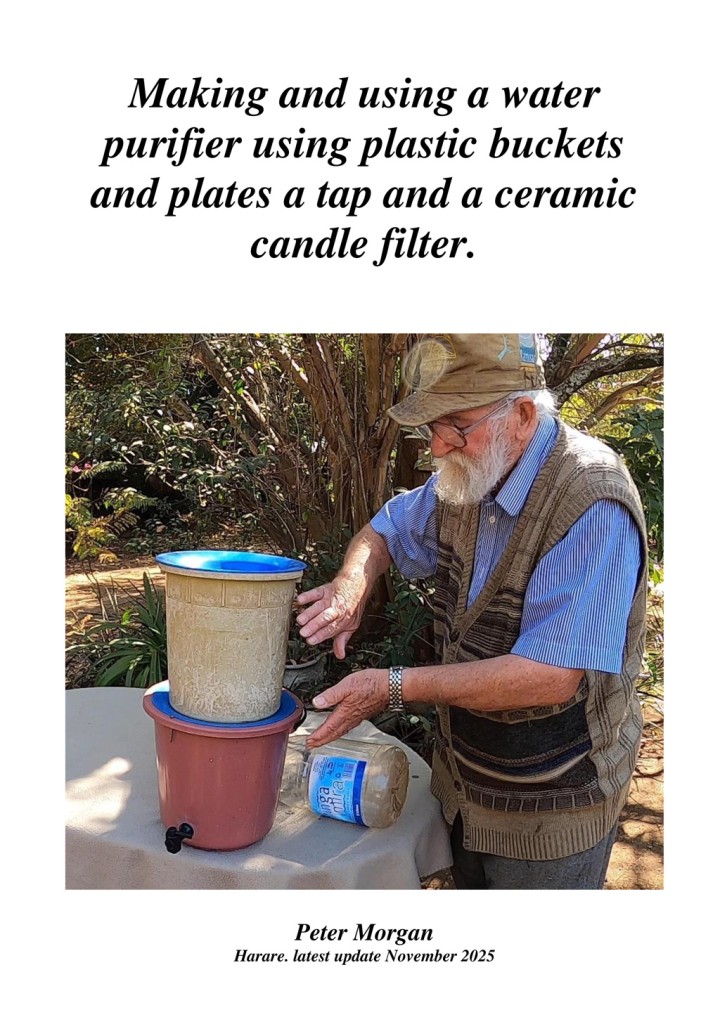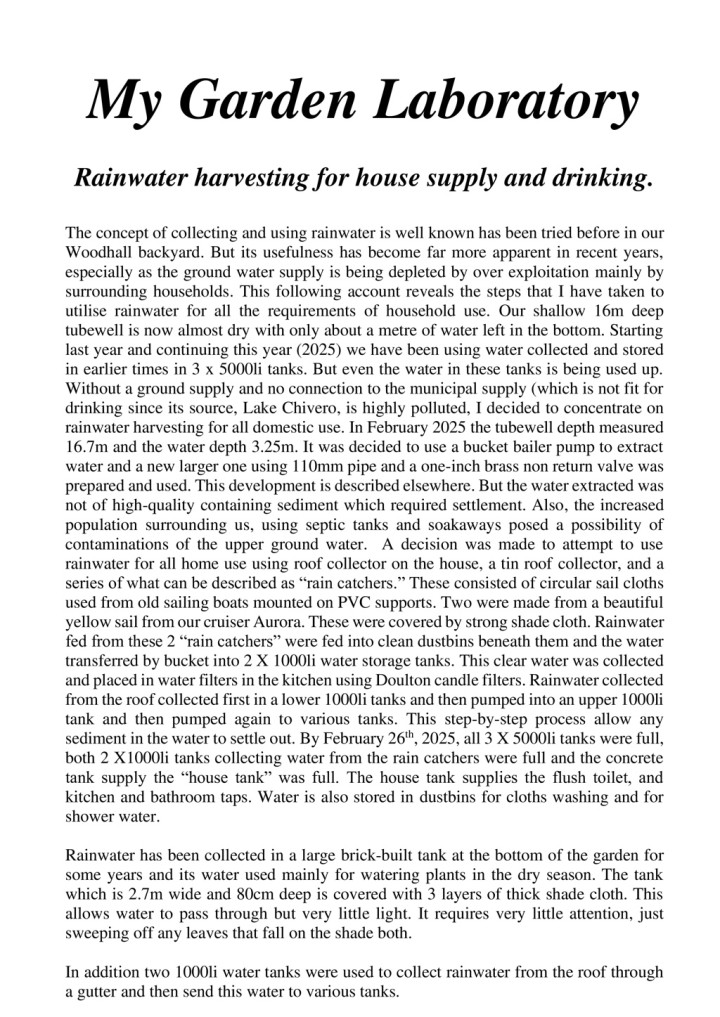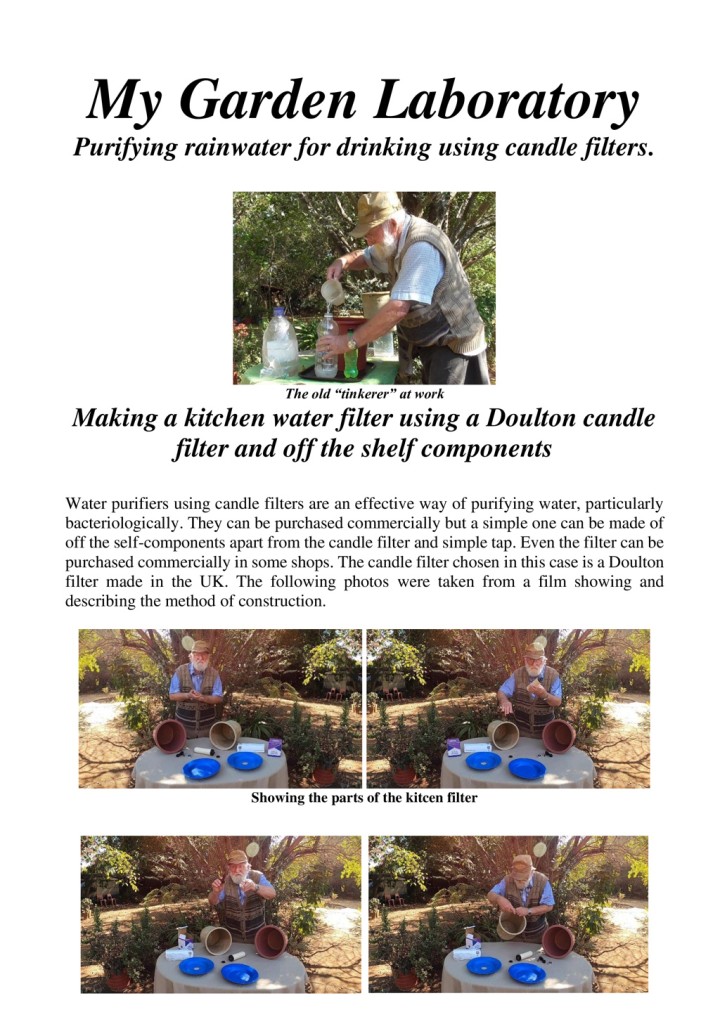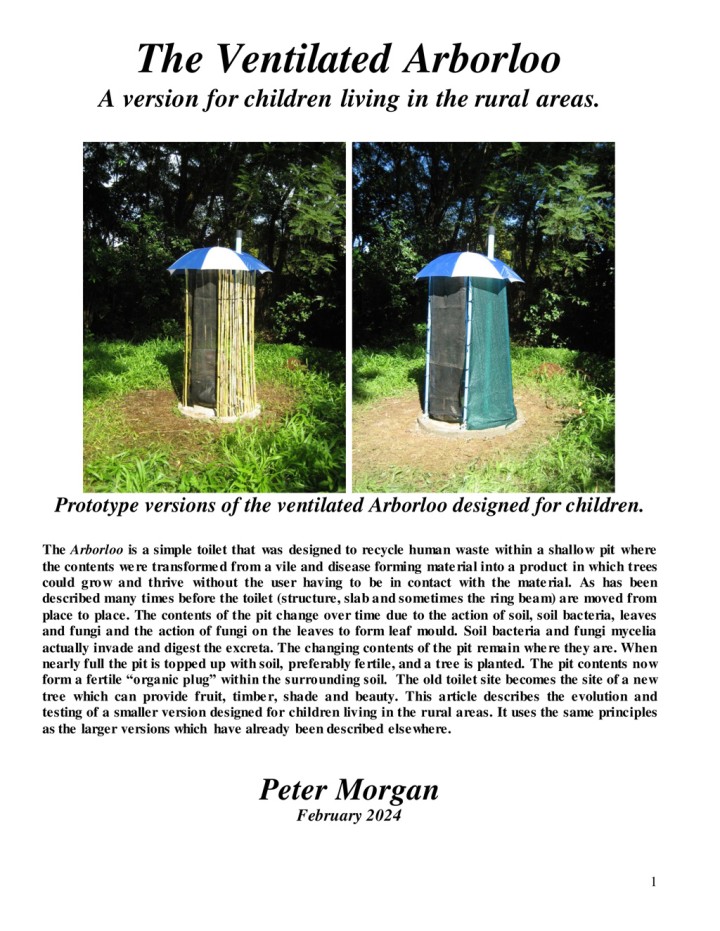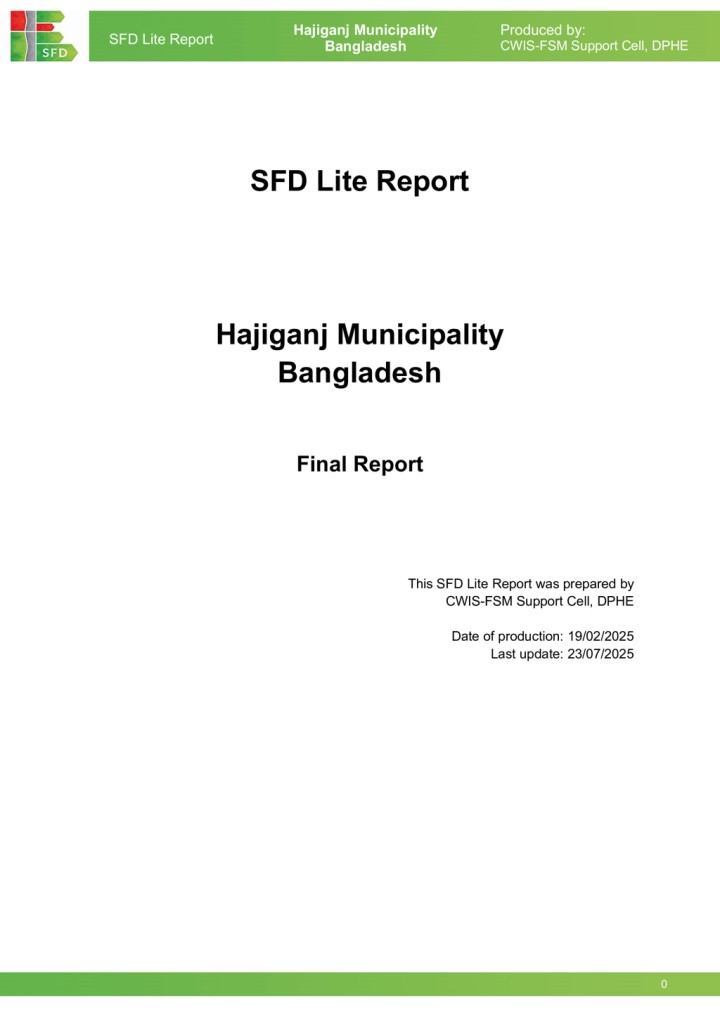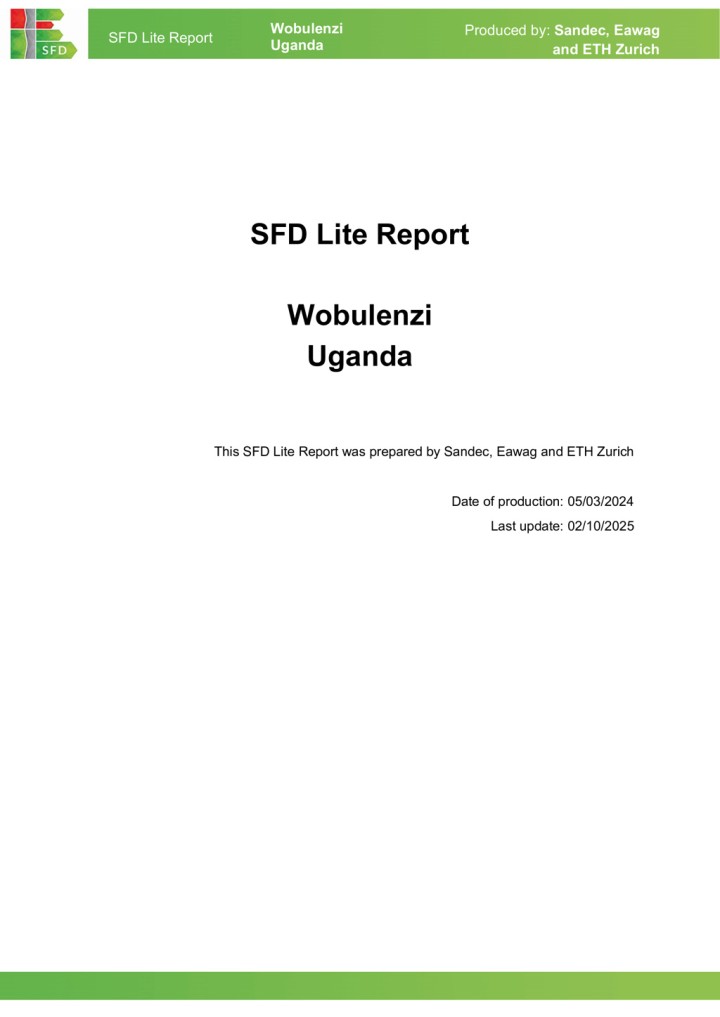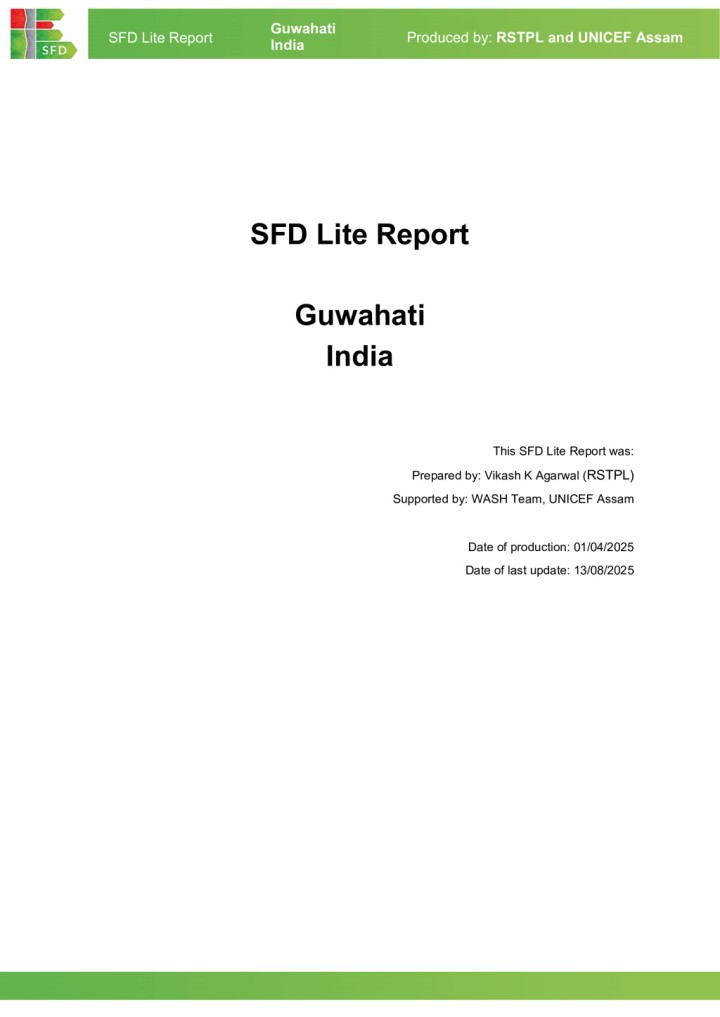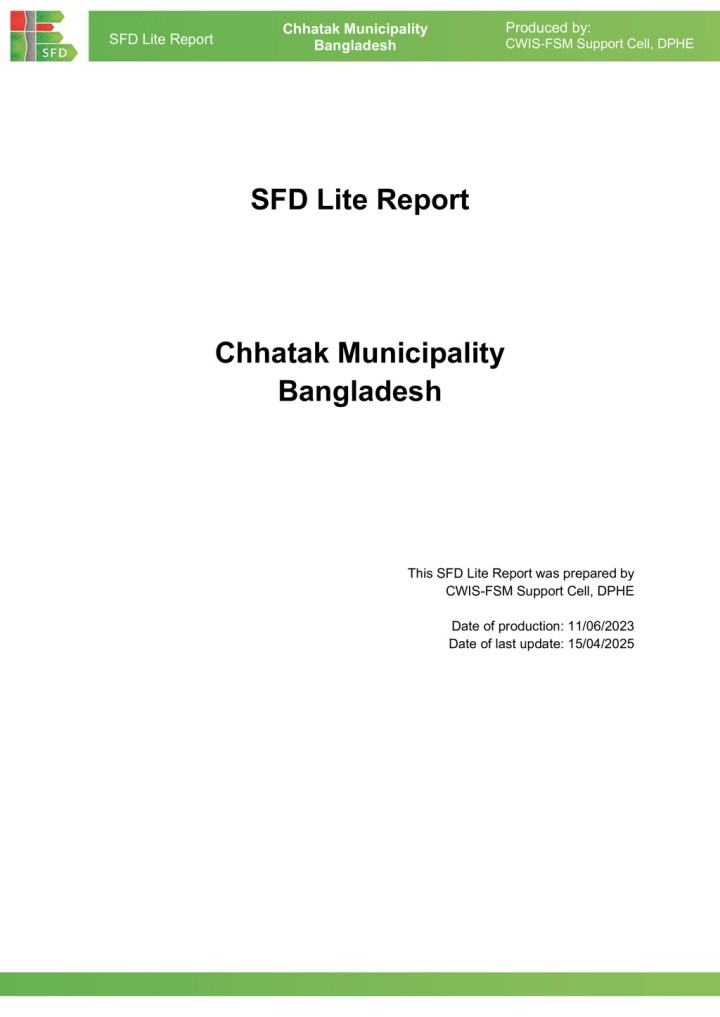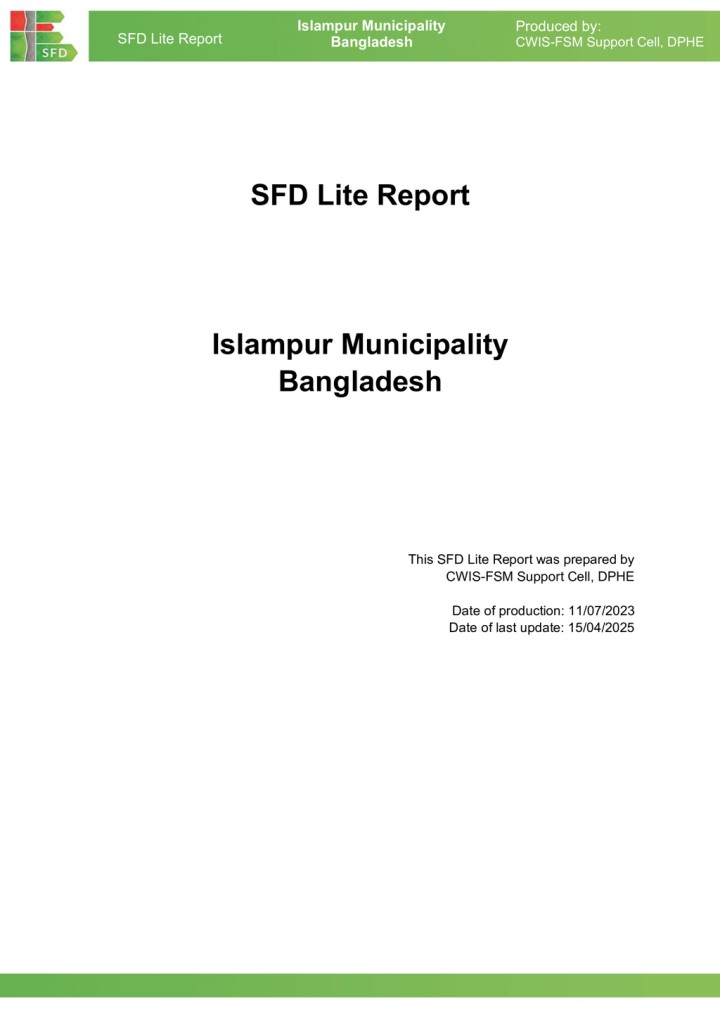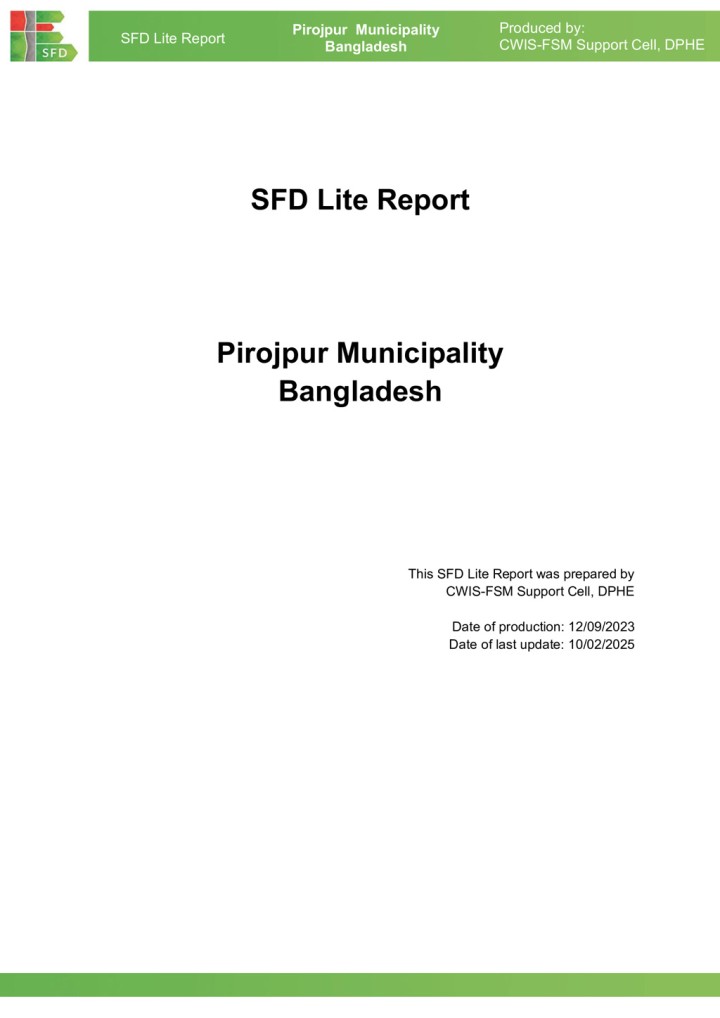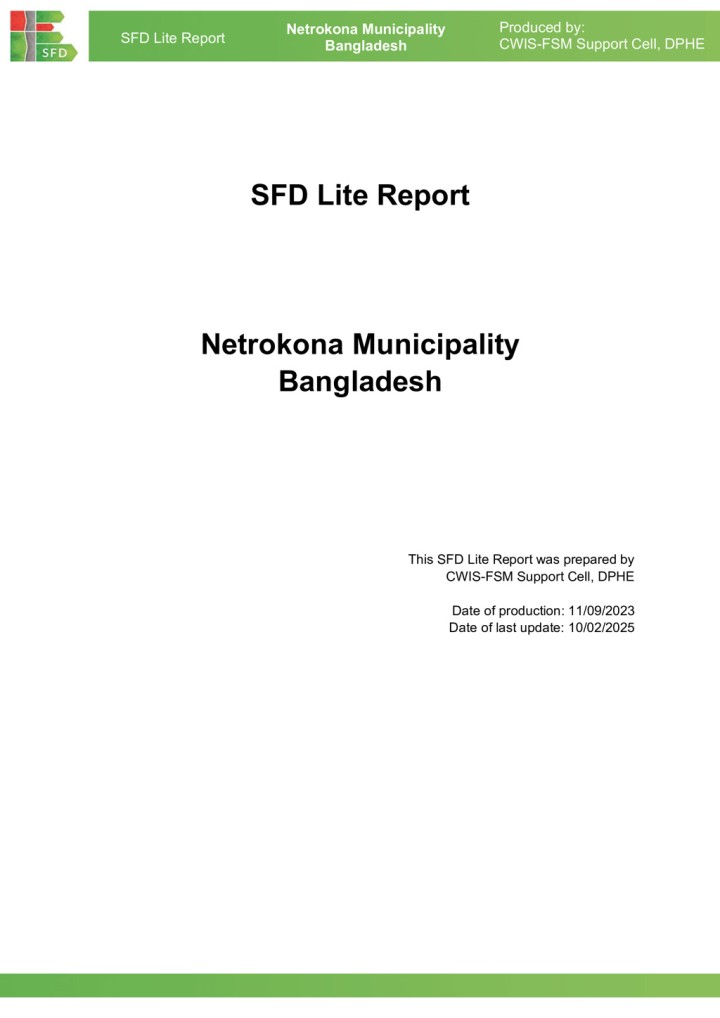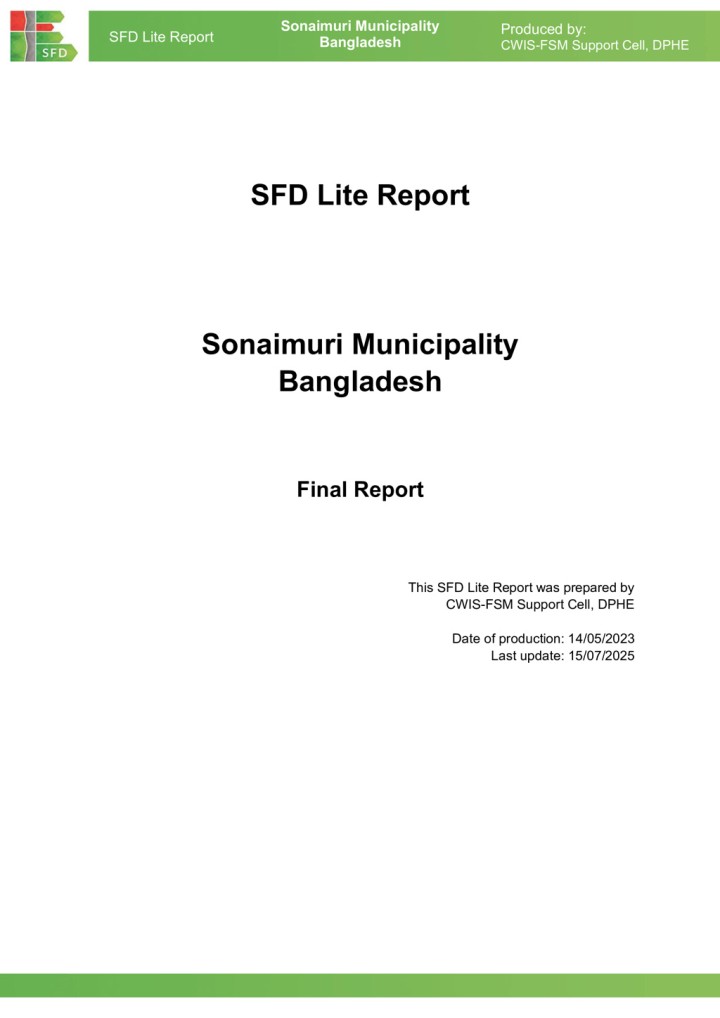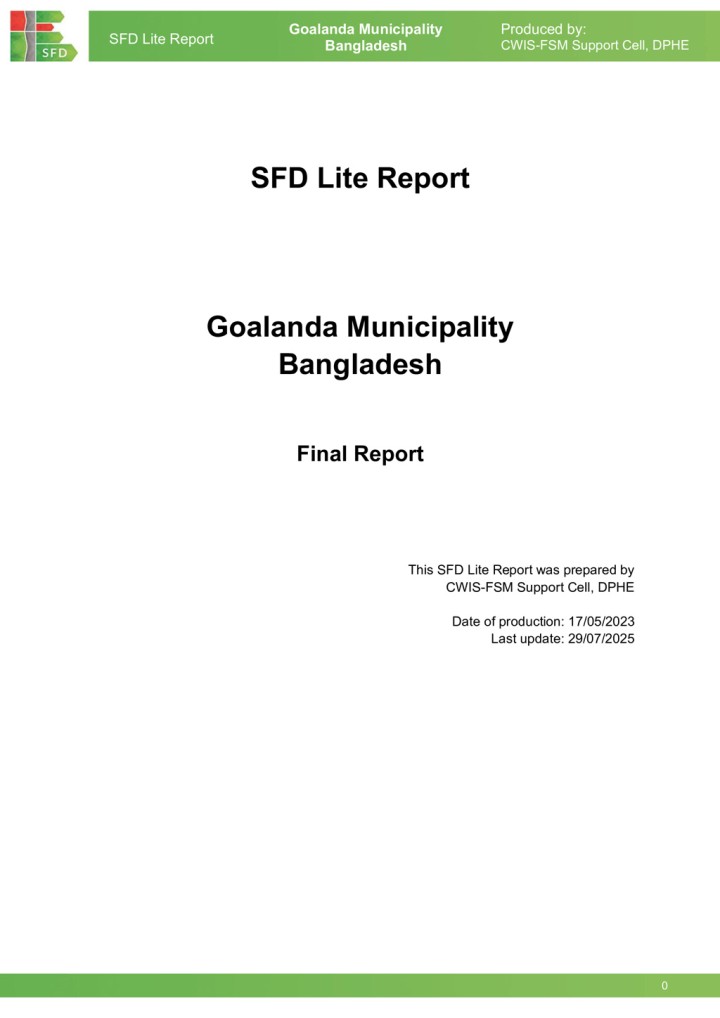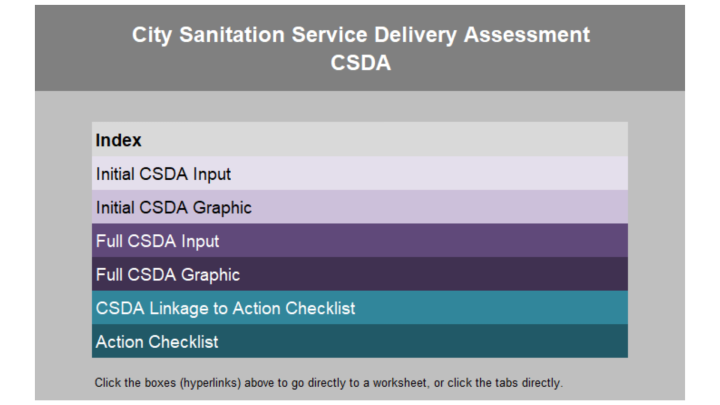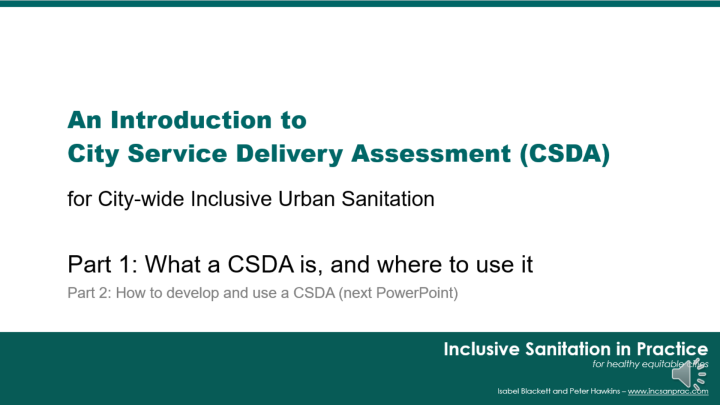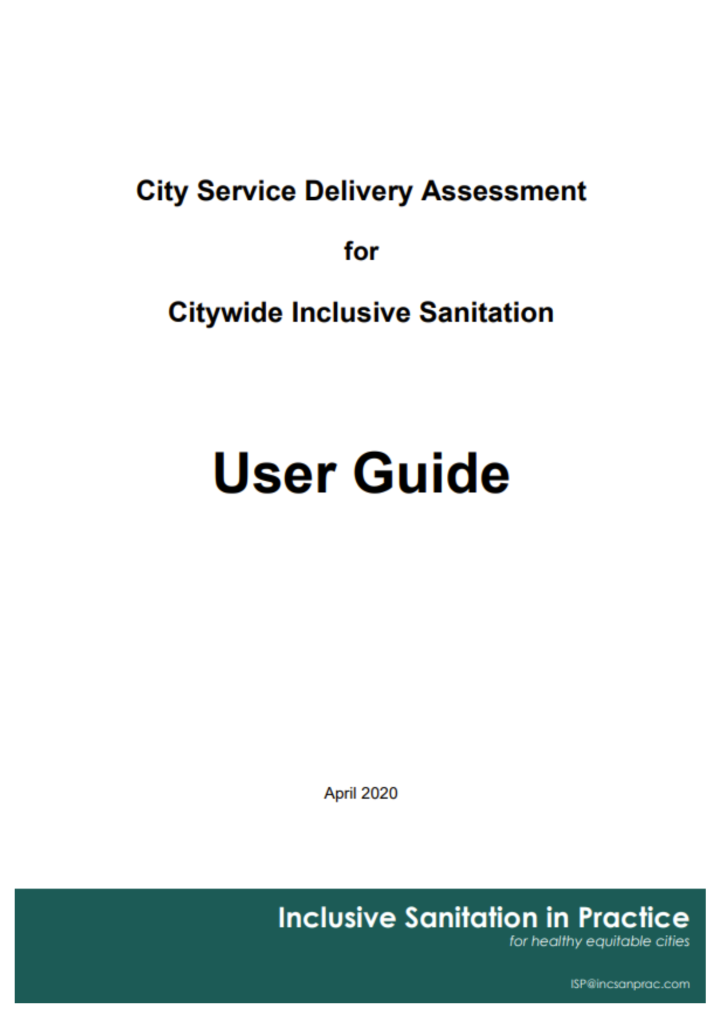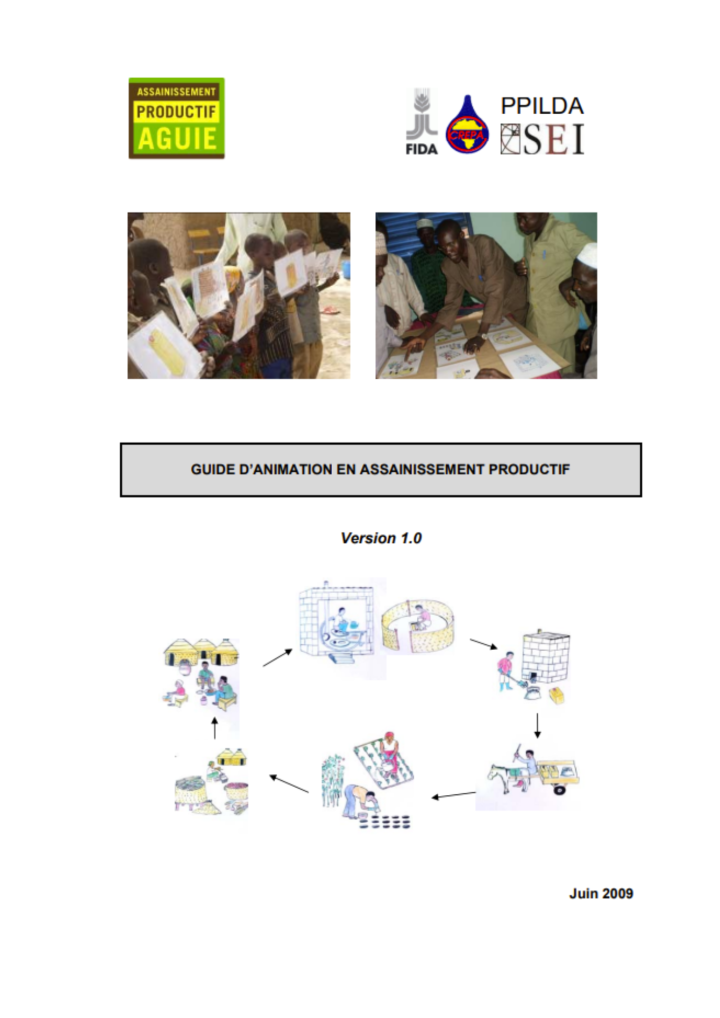CWIS-FSM Support Cell, DPHE (2023) SFD (Lite) Report - Dewanganj Municipality
Dewanganj Municipality is located within the Dewanganj Sub-District (Upazila) situated in the Jamalpur District (Zila) under Mymensingh Division. The geographical coordinates of Dewanganj are 25° 08' 30.12" N and 89° 46' 59.88"E. It is bordered on the north by the Char Rajibpur Upazila, on the south by the Islampur Upazila, on the east by the Bakshiganj Upazila and the Indian state of Meghalaya, and on […]
CWIS-FSM Support Cell, DPHE (2023) SFD (Lite) Report - Karimganj Municipality
Karimganj Municipality is located within the Karimganj Sub-District (Upazila) situated in the Kishoreganj District (Zila) under Dhaka Division. The geographical coordinates of Karimganj are 24°27'29.88" N and 90°52'59.88" E. Karimganj Upazila is bordered on the north by the Char Rajibpur Upazila, on the south by the Islampur Upazila, on the east by the Bakshiganj Upazila and the Indian state of Meghalaya, and on the west […]
CWIS-FSM Support Cell, DPHE (2023) SFD (Lite) Report - Shibchar Municipality
Shibchar Municipality is a Municipality in the Shibchar Sub-District (Upazila), which is situated in Madaripur District under Dhaka division. The geographical coordinates of Shibchar are 23°21'N and 90°10' E. The borders of Shibchar Upazila are the Padma River, the Upazilas of Lohajang and Sadarpur in the north, the Upazilas of Rajoir and Madaripur Sadar in the south, the Upazila of Zanjira in the east, and […]
Peter Morgan (2025) Making and using a water purifier using plastic buckets and plates a tap and a ceramic candle filter
The availability and safety of municipal piped drinking water in cities like Harare is much disputed, especially for those people living in high density settlements and the suburbs. This is becoming a source of concern for other towns and cities not only in Zimbabwe but in many other countries throughout the world. Most people cannot afford to drill boreholes on their own property and pump into […]
Peter Morgan (2025) My Garden Laboratory - Rainwater harvesting for house supply and drinking
The concept of collecting and using rainwater is well known has been tried before in the authors backyard. But its usefulness has become far more apparent in recent years, especially as the ground water supply is being depleted by over exploitation mainly by surrounding households. This following account reveals the steps that the author has taken to utilise rainwater for all the requirements of household […]
Peter Morgan (2025) My Garden Laboratory - Purifying rainwater for drinking using candle filters
The manual describes how rainwater can be purified for drinking using a simple candle filter, such as a Doulton ceramic filter. With basic, readily available materials, it is possible to build an inexpensive yet effective water filter that reliably removes bacteria and produces clean, chemical-free water.
Peter Morgan (2024) The Ventilated Arborloo - A version for children living in the rural areas.
The Arborloo is a simple toilet that was designed to recycle human waste within a shallow pit where the contents were transformed from a vile and disease forming material into a product in which trees could grow and thrive without the user having to be in contact with the material. The ventilated Arborloo is an important addition to the variety of ecological toilets available for people […]
CWIS-FSM Support Cell, DPHE (2023) SFD (Lite) Report - Haziganj Municipality
Hajiganj Municipality is located within the Hajiganj Sub-District (Upazila) of Chandpur District (Zila), which is under Chattogram Division. It is the largest Municipality in the District next to Chandpur. The geographical coordinates of Hajiganj are 23° 15' 0.00" N and 90° 50' 60.00" E. Hajiganj is bordered on the north by Kachua and Matlab Dakshin Upazilas, on the south by Faridganj and Ramganj Upazilas, […]
Julian Fritzsche (2024) SFD (Lite) Report - Wobulenzi
Wobulenzi is located around 50km north of Kampala along Gulu Road. It is a small town with a population of around 36.000 inhabitants mainly working in the agricultural sector. About 60% of the population lives in urban areas, whereas 20% live in peri-urban, respectively rural areas. The outcome of the SFD graphic shows that 38% of the excreta flow is classified as safely managed, and the […]
Vikash K Agarwal (2025) SFD (Lite) Report - Guwahati
As the largest metropolis in Northeast India by area and population, Guwahati serves as the region's primary gateway. Located at 26°10’ North latitude and 92°49’ East longitude on the southern bank of the Brahmaputra River, the city is strategically positioned to connect the six sister states of Northeast India. Guwahati City is governed by the Guwahati Municipal Corporation (GMC), covering a total area of 216.79 sq. […]
CWIS-FSM Support Cell, DPHE (2023) SFD (Lite) Report - Chhatak Municipality
Chhatak Municipality is located within the Chhatak Sub-District (Upazila) situated in the Sunamganj District (Zila) under Sylhet Division. The geographical coordinates of Chhatak are 25°02'30.12"N and 91°40'30"E. It is bordered by the Indian state of Meghalaya and the Upazila of Companiganj (Sylhet) on the north, the Upazila of Jagannathpur on the south, the Upazilas of Companiganj (Sylhet), Sylhet Sadar, and Bishwanath on the east, […]
CWIS-FSM Support Cell, DPHE (2023) SFD (Lite) Report - Islampur Municipality
Islampur Municipality is located within the Islampur Sub-District (Upazila) situated in the Jamalpur District (Zila) under Mymensingh Division. The geographical coordinates of Islampur are 26°16'12.00"N and 88°12'0.00"E. It is bordered on the north by the Upazilas of Dewanganj and Bakshiganj, on the south by the Upazilas of Madarganj and Melandaha, on the east by the Upazilas of Sherpur Sadar and Sreebardi, and on the west […]
CWIS-FSM Support Cell, DPHE (2023) SFD (Lite) Report - Pirojpur Municipality
Pirojpur is a fast-growing city, which is 265 km away from the Dhaka city. It is beside the Balaswar River and well connected with road and water. It is one of the oldest towns and was declared “A” class Municipality in 1989. Pirojpur is one of the 53-district level municipalities in the country. The geographical coordinates of Pirojpur are in between 22'09' and […]
CWIS-FSM Support Cell, DPHE (2023) SFD (Lite) Report - Netrokona Municipality
Netrokona is a fast-growing city, which is 175 km away from the Dhaka city. It is beside the Magra River and well connected with road, water, and railways. It is one of the oldest towns in the sub-continent and was declared Municipality in 1887. Netrokona is one of the 53 district level municipalities in the country. The geographical coordinates of Netrokona are in 24°34' […]
CWIS-FSM Support Cell, DPHE (2023) SFD (Lite) Report - Sonaimuri Municipality
Sonaimuri Municipality is located at the Sonaimuri Upazila, which is situated in Noakhali District under Chattogram Division. It is situated 19 km from the district centre (Zila Sadar). The geographical coordinates of Sonaimuri are 23° 3' 13" N and 91° 6' 56" E. Noakhali District is bordered on the north by Monoharganj Upazila (Cumilla), on the south by Begumganj Upazila, on the east by Senbagh […]
CWIS-FSM Support Cell, DPHE (2023) SFD (Lite) Report - Goalanda Municipality
Goalanda Municipality is located within the Goalanda Sub-district of Rajbari District, which is under Dhaka Division. This municipality was established in 2000. It is located at south central part of Bangladesh and about 95 km (through Daulatdia) away from the Dhaka City. The geographical coordinates of Goalanda are between latitudes 23°41'N and 23°50'N and longitudes 89°41'E and 89°51'E. Goalanda Upazila […]
Blackett, I., Hawkins, P. (2019) CSDA CWIS Tool
A Faecal Waste Flow Diagram (SFD) illustrates the citywide sanitation situation in a city, but not the underlying reasons for that situation. The CSDA (City Sanitation Service Delivery Assessment) is a complementary tool to assess why the situation is as it is. It supports a systematic process for working with stakeholders to assess the enabling environment for Citywide Inclusive Sanitation (CWIS). It also includes an […]
Blackett, I., Hawkins, P. (2019) CSDA Training Materials An Introduction to City Service Delivery Assessment
The City Service Delivery Assessment (CSDA) is a complementary tool to assess why the situation is as it is. It supports a systematic process for working with stakeholders to assess the enabling environment for Citywide Inclusive Sanitation (CWIS). This training material is meant to help participants understand and apply the City Service Delivery Assessment (CSDA) tool for Citywide Inclusive Sanitation (CWIS).
Blackett, I., Hawkins, P. (2019) City Service Delivery Assessment for Citywide Inclusive Sanitation - User Guide
The City Service Delivery Assessment (CSDA) is a complementary tool to assess why the situation is as it is. It supports a systematic process for working with stakeholders to assess the enabling environment for Citywide Inclusive Sanitation (CWIS). It is accompanied by an Action Checklist to help stakeholders identify and prioritise immediate and follow-up actions to improve the enabling environment to facilitate the delivery and […]
PPILDA (Projet de Promotion de l’Initiative Locale pour le Développement à Aguié) (2009) Guide d’animation en Assainissement Productif Version 1.0 – Outil pour la formation et l’accompagnement communautaire
This practical guide was developed to support community facilitators and field animators in promoting productive sanitation practices in rural areas of Niger. Building on the PHAST (Participatory Hygiene and Sanitation Transformation) methodology, it provides participatory tools to help communities understand the health risks of poor excreta management and the agricultural value of hygienized urine (Takin Ruwa) and feces (Taki Busasché). The document explains the construction, […]
